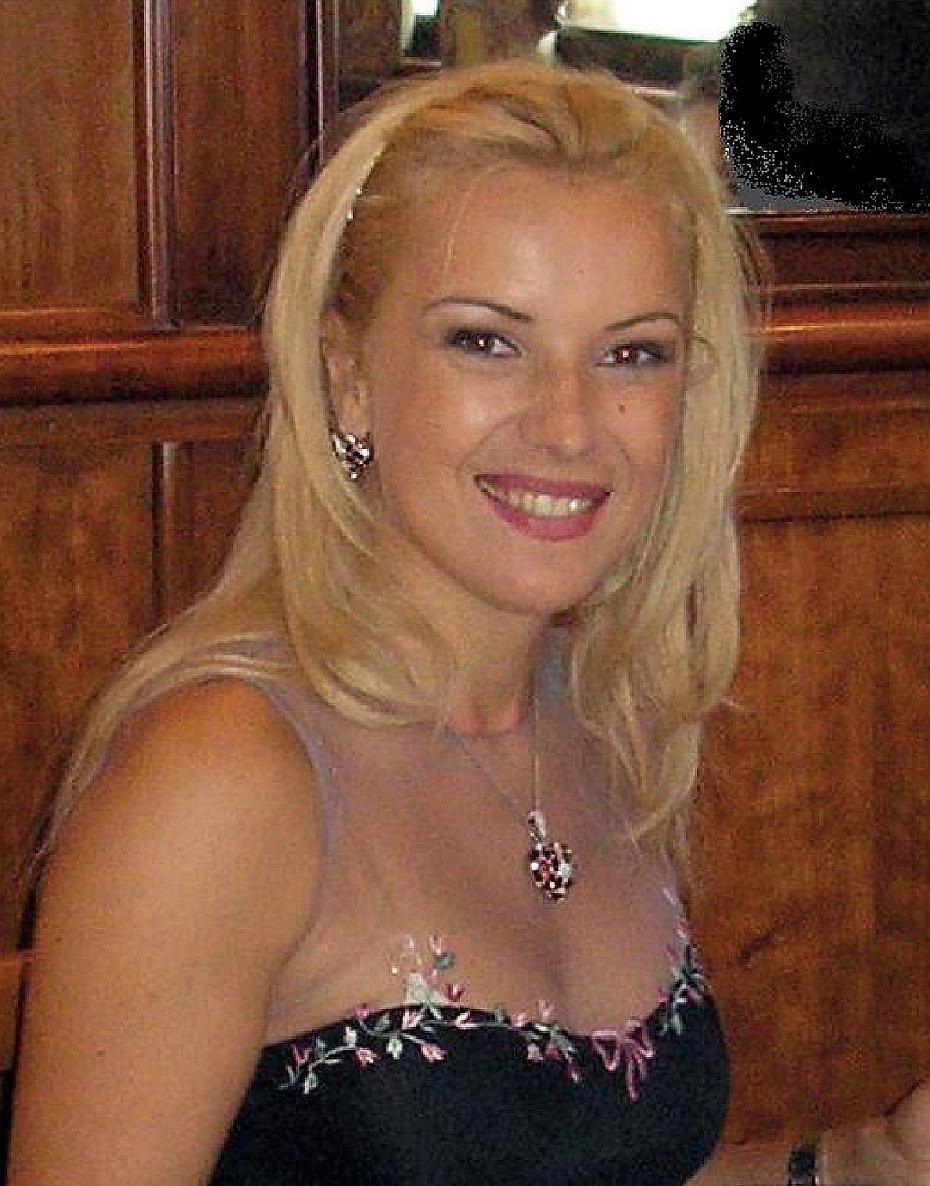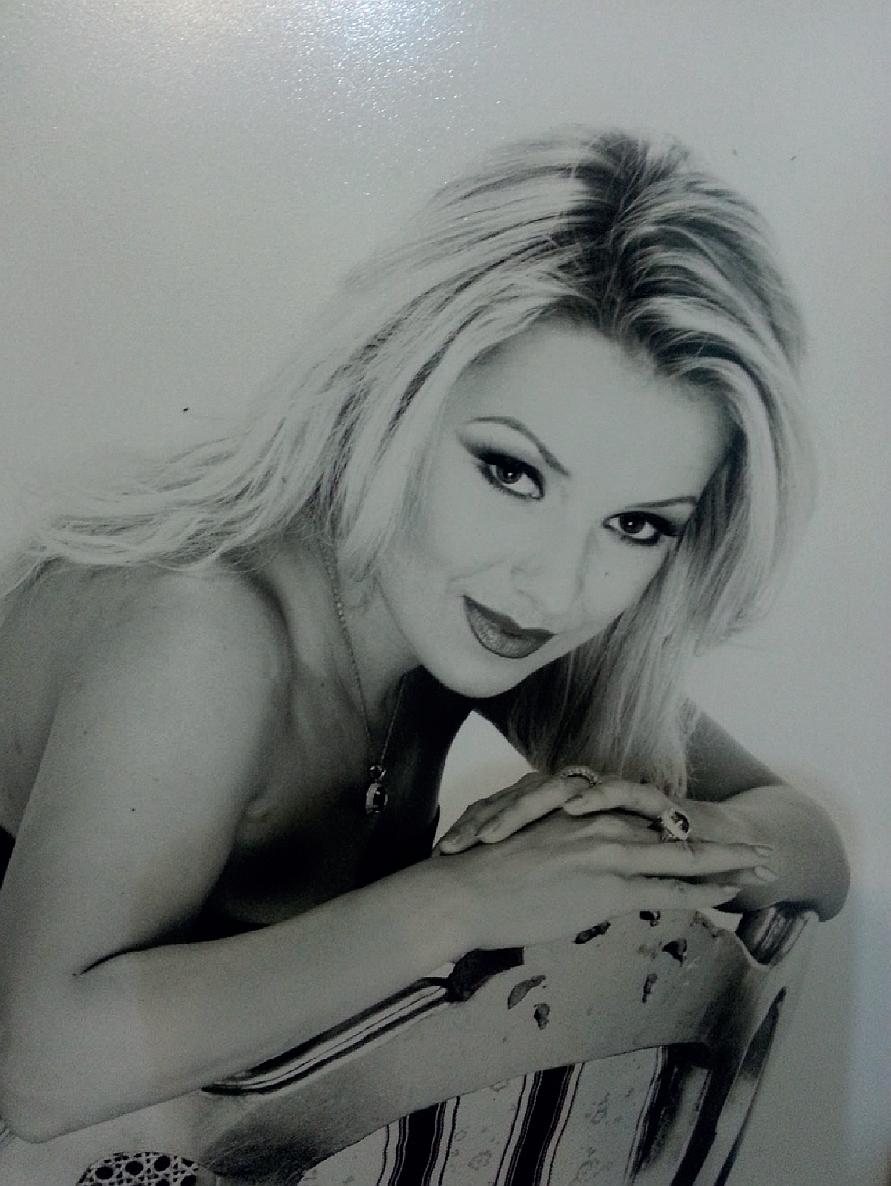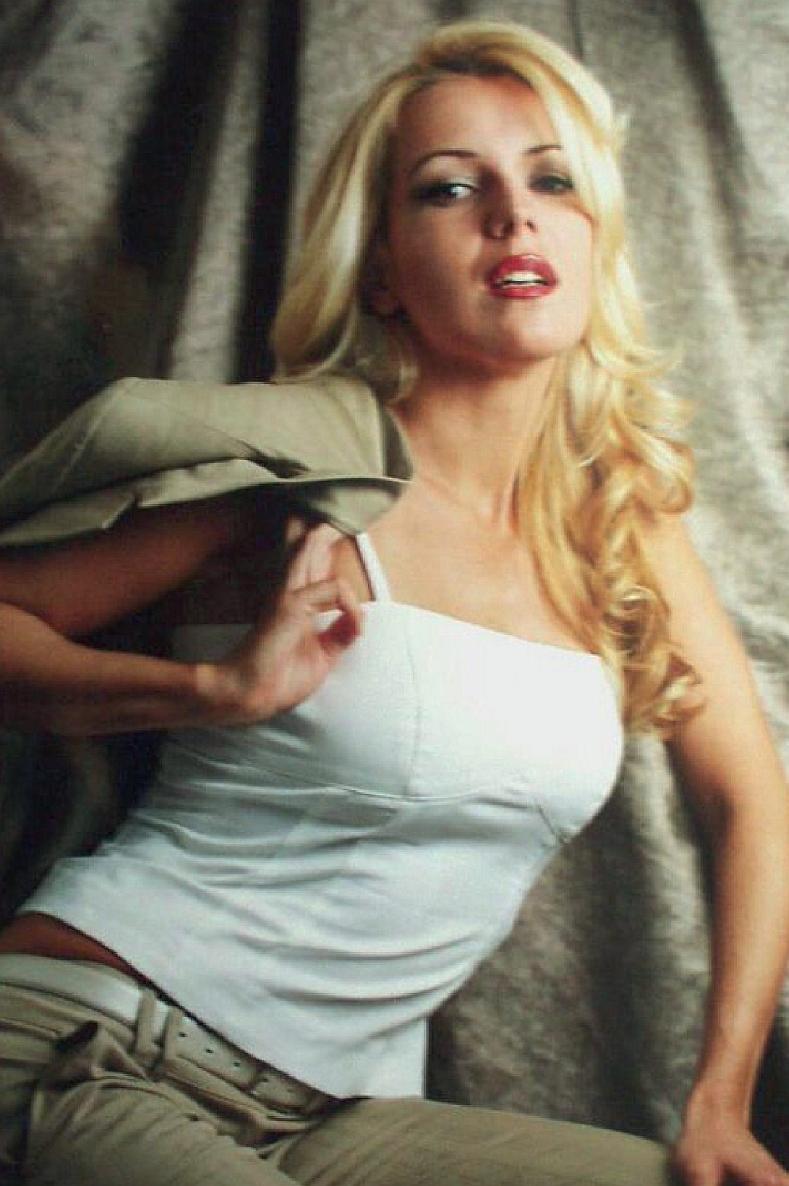
Полная версия
Loose End
That day my story with Biagio actually began. I had started with a good-looking dude who never missed an opportunity to make me notice. Me, the loser who lived in the countryside, on the northern outskirts of the capital, he upper class who lived in the center, the beating heart of the metropolis: “I like to smell the stench of asphalt. All this green makes your head spin, too much oxygen”, he repeated like a broken record.
I would never have gone into Rome, in 50 square meters, leaving my beautiful house of 200 square meters, surrounded by nature. Moreover, I preferred to pay the mortgage and have my own apartment forever, rather than shell out the money for rent every month.
In the end he accepted: together yes, but at my place. It was really very tiring. Nothing suited him. Our tastes were very distant. “Why did you buy a house right here? And why did you decorate it this way? With all this stuff?”.
He liked extreme minimalism: a table, a sofa and a TV. He stood with his breath on my neck to change all the furniture. I did not even think of it remotely, every corner told of me, of the sacrifices I had had to face to give the house the image I dreamed of.
The pressures from him soon began to bother me, I could not tolerate the results of my sacrifices being questioned. “I sweated from my forehead to set up this house. And I don't think you've done much better than me”. However our story went on. Maybe it wasn't the best for me, but I wasn't bad with him. He was a smart, intelligent person with a law degree and work experience in the real estate sector. And then I wanted to become a mother: I became pregnant with a child that we both wanted and desired. Biagio was forty-four, had never married and was very close, perhaps too much, to his parents. For this reason he did not absolutely feel the need to become a father, but he strongly felt the need to give a grandson to mum and dad.
He had benefited all his life from the generosity of his parents, who now pressed him to have a grandchild and he wanted to please them.
In August 2003, 5 months pregnant, as always, I went to visit my parents, while Biagio was busy with his work. At that precise period he was following Saadi Gaddafi, a Perugia footballer, son of the Libyan dictator. His needs were very varied and he needed a legal consultant also for finding the accommodation that had to be suitable to host, on her arrival in Italy, his wife with all the trousseau of companions, dogs and bodyguards. After two weeks in Romania, I returned to Italy by plane.
At Fiumicino, at passport control, they stopped me. According to the border police, I could not have landed in Italy because, being a resident of Rome, I would have needed a work permit. An Italian-style bureaucratic puzzle. Or a spite to Eva Mikula, to the uncomfortable Eva Mikula. Those were the years in which Romanian citizens could enter freely and without a visa for a maximum stay of three months as tourists. I, who had been residing for 8 years and a company started with 8 employees, could not enter. They wanted to send me back to Romania. I called Biagio. He came running.
But they didn't even let us meet. I could only look at him through the windows. I didn't feel well. They only allowed me to take the medicines I needed for pregnancy out of the suitcase. I panicked: the next morning I was supposed to open the company. I imagined the employees waiting for me and the customers having breakfast sitting at the bar.
The next morning, at the change of shift, I tried again to explain the absurdity of what they were doing. I was finally able to get in touch with a lawyer experienced in the legislation relating to entry visas, in force at the time. It turned out that the mystery could have two reasons: total incompetence of the policemen or targeted fury on my name. To think badly... The law, in fact, established that the entry visa was mandatory only the first time for those who entered Italy for work reasons. Or for those who did not yet have an indefinite residence. The lawyer called the border police office. And they let me pass. With the sadness and bitterness of those who feel unwelcome. A woman pregnant with a child with an Italian father who had been paying taxes in Italy for years, forced to sleep on an airport bench. From Fiumicino I went directly to my restaurant bar. There was no time to feel sorry for myself.
A question tormented me: “How can I start a family and manage a business at that pace, with those hours?”. I was at a crossroads: family or work? Biagio did not like the idea that I ran a restaurant, that I worked in a bar-restaurant: “It is not an activity that suits you, an office would be more suitable; a more level job for you, instead of being among people who cannot speak and write, who come to have coffee with muddy construction shoes. You cannot be among these people”. I replied: “Those muddy people feed me.” “What does it mean?” Biagio retorted “Then get married to a butcher who has a lot of money, rather than a distinguished person”. I decided to sell the place.
Francesco was born, an infinite joy, I was finally a mother! My nature, however, could not bend, in fact after a month I was already pawing: I absolutely had to go back to doing something, to work, also because no kind of financial help came from the child's father and I still had the mortgage to pay. It can't really be said that he was the typical husband of the past: he out to work and to bring the sustenance for the family and his wife in the house to take care of the housework and the children.
So I began to ask myself questions. Basically I was thinking, “He's never okay with anything about me, he makes me feel out of place, inadequate”, so my self-esteem started to falter.
I was looking for answers in my memories: what had struck me about him? Why had he somehow managed to win me over? I believe the apparent refinement; a feeling perhaps accentuated by the fact that he came out of the canons of the people I had known and frequented until then. Already from that clutch bag that I took out of his pocket, it was evident that he was a man of good taste, well dressed at least, but his humility and modesty did not dwell in him. I thought he would be, in some ways, a good guide. And I can say that, in some areas, such as the professional one, he went like this.
In the period in which I began to attend it, the story that in spite of myself had brought me into the spotlight of notoriety and that had made me live under protection brought in the courtrooms, very far from the life I dreamed of, was still very well known.
Although it was a past that I still wanted to leave behind, I talked about it to Biagio although I avoided describing too many details. He never judged me. But he too had asked a few questions, and, perhaps for this very reason, I began to ask them too.
Passion, in my imagination, was another thing. Another dream in the drawer? Who knows, you can't have everything in life; someone like me, not a saint with a skirt and dancers, with a regular life in the parlor of mommy and daddy; one who had lived on the edge, in short, a woman already passed through the meat grinder of life experiences, could have ruined her reputation, her balance as a scion of a good Roma family.
Rather, I found myself in the words of Loredana Berté's song: “I am not a lady, one with all stars in life... but one for whom the war is never over”.
I don't know if it was good or not, but Biagio consulted with his friend, the one who acted as a navigator when he came to visit me for the first time in my place. "Don't care about her past of her" he told him "Eva is beautiful, smart, autonomous, independent, she has a welcoming home. In your place I would throw myself headlong".
Not really headlong, but Biagio followed the advice. He kept a little distance, a retro thought, more than anything else. According to him I missed the culture, the study, the Italian style. It was as if I was expecting nothing else. After all, one of the deepest frustrations I carried inside was precisely that of having interrupted school when I ran away from home.
I loved books, I wanted to grow culturally, to learn, to understand, to know. Incidentally, I began to study jurisprudence, a subject of which empirically, in the field, I had learned not everything, but a lot, especially of the thousand streams of the criminal law.
I was looking for answers in my memories: what had struck me about him? Why had he somehow managed to win me over? I believe the apparent refinement; a feeling perhaps accentuated by the fact that he came out of the canons of the people I had known and frequented until then. Already from that clutch bag that I took out of his pocket, it was evident that he was a man of good taste, well dressed at least, but his humility and modesty did not dwell in him. I thought he would be, in some ways, a good guide. And I can say that, in some areas, such as the professional one, it went like this.
In the period in which I began to attend him, the story that in spite of myself had brought me into the spotlight of notoriety and that had made me live under protection brought in the courtrooms, very far from the life I dreamed of, was still very well known.
Although it was a past that I still wanted to leave behind, I talked about it to Biagio although I avoided describing too many details. He never judged me. But he too had asked a few questions, and, perhaps for this very reason, I began to ask them too.
Passion, in my imagination, was another thing. Another secret wish? Who knows, you can't have everything in life; someone like me, not a saint with a skirt and dancers, with a regular life in the parlor of mommy and daddy; one who had lived on the edge, in short, a woman already passed through the meat grinder of life experiences, could have ruined his reputation, his balance as a scion of a good Roma family. Rather, I found myself in the words of Loredana Berté's song: “I am not a lady, one with all stars in life... but one for whom the war is never over”.
I don't know if it was good or not, but Biagio consulted with his friend, the one who acted as a navigator when he came to visit me for the first time in my place. “Don't care about her past” he told him “Eva is beautiful, smart, autonomous, independent, she has a welcoming home. In your place I would throw myself headlong”.
Not really headlong, but Biagio followed the advice. He kept a little distance, a retro thought, more than anything else. According to him I missed the culture, the study, the Italian style. It was as if I was expecting nothing else. After all, one of the deepest frustrations I carried inside was precisely that of having interrupted school when I ran away from home. I loved books, I wanted to grow culturally, to learn, to understand, to know. Incidentally, I began to study jurisprudence, a subject of which empirically, in the field, I had learned not everything, but a lot, especially of the thousand streams of the criminal law.
During the five years of judicial proceedings and the seven trials against me, from 1994 to 1999, I carefully read all the procedural documents and proceeded side by side with my lawyer.
I really understood many aspects of your way of setting up criminal trials. But I was interested in civil law and so I began to study it; it would have been very useful to face a new professional challenge that I was convinced I could launch and win: the real estate sector, as an entrepreneur and expert, and not in the role of intermediary agent, because facing people and public opinion, still gave me anxiety.
I also added a little practice to the books; initially Biagio gave me a hand, especially when I had to write letters, he wrote them for me, or corrected them. However, when I told him that I wanted to try my hand at judicial auctions, a difficult and difficult environment, consolidated in the classic “Italian tours”, he got a little sideways.
Biagio did not look favorably on this choice. “It's not for beginners” he advised me against, but very politely, he let me go down that road. And he did well, very well! I started my new professional experience as a secretary in a company that paid me very little, but the practice in the field I needed to gain experience.
In fact, then I took off, and from secretary I passed first to head and then to manager: I had people to manage and increasingly difficult and demanding tasks.
Naturally, as if it were the consequence of what I had quickly built up also in this field, carrying on the challenge launched, I found myself again the arbiter of myself and, once again, I got back on my own.
With Biagio, from the sentimental point of view, the story had cooled down a lot. It could not be otherwise: we had very different characters and visions of life, almost at the antipodes. My eyes had seen things he couldn't even imagine. He lived with a film noir and didn't realize it. I was the film and he was a single in the family. He did not even know how to seize the opportunity that this woman could represent for his growth in the real world, not the easy one of good neighborhoods, with his back always covered in all senses, by his parents. It was certain that I could not expect to change a man over forty. Strangely, however, the agreement on work was progressing well, it worked, we were like two partners without a formalized company. In order not to think about the sentimental emptiness, the unhappiness of the couple, I worked more and more intensely, so almost without realizing it, I took away important time also from my son, from his growth.
Biagio, however, continued to represent a milestone for me, at least in what we had professionally built together. He was a fair person, of his word and who didn't hurt me, at least physically.
Psychologically, however, when my success began to gallop, his attempts to attack my self-esteem became more and more frequent: “You don't know how things work in Italy”, a phrase already heard in the past by another person whose name was Fabio Savi.
In his opinion, I was not adequate to the Italian system; he knew it better than me and therefore, by default, only his way of thinking and his way of acting were right. In short, he mortified me, he was a great provocateur and quarrelsome of character, he loved Neapolitan dramas. I would not have imagined, however, that this attitude of him would also manifest itself in the home, for the education of our son. I tried to impose some rules, to try hard not to give in on everything, not to consent to every request of the child. To say some no. Of course it is easier to always say yes; it is at the moment, then who knows when he will grow up what he can expect if he is used to having everything he wants. Biagio did just that, he raised him by spoiling him and excluding me from the educational process. So dad was God and mom a nuisance. The space and the role of mother were canceled, I was put aside in a corner: “Mum doesn't understand anyway, she comes from Romania”.
I lived this double drama at home: excluded as a mother and lacking in love. Biagio seemed less and less empathetic to me, I was a woman who did not feel loved, not because he did not love me, I am convinced that, in his own way, he had a lot of love for me, but I almost never perceived it.
Life, the vicissitudes, the pains, the fears had had on me the effect of never letting me give up, of not leaving things in half and of splitting hairs to understand, to give myself and to give explanations. So the word “empathy” caught me. It captured my thoughts, my logic, and then I started studying it and learning its meaning. I understood the importance of this aspect of the human being, of his nature.
Why didn't I feel Biagio's love? In my imagination I wore the white coat and the cap with the red cross and became the nurse of the cohabitation relationship and of the family. I was naively convinced that if I had understood the problem of him, of Biagio, I would have given a boost to our relationship and I would have made sure that the child saw harmony between the parents in love.
I was naive indeed, because thinking of being able to solve our problem only with this type of attitude and without the collaboration of the other party, was a mission lost from the start.
So, after yet another fight, as always for a trivial reason, I asked myself: “What is the use of being a Red Cross nurse? I'm just sick. With him or without him, what would change in my life? Surely it could change for our son who would no longer hear the screams of arguing parents”. We women, faced with strong motivations, know how to be determined: when we close, we hardly retrace our steps. I did so.
Our friends were amazed and obviously harshly criticized me. I can't blame them completely, Biagio, in fact, had a double face. Away from the family context, from the private, he was the most adorable, most communicative, most distinguished, most elegant and expansive person. He was able to make everyone love him, a great merit of him.
With me at home he was a completely different person, and no one believed me. Even a friend of mine said that I was lying, that it was impossible that Biagio was the one I described to her during our friendly conversations, in an attempt to explain the reasons for our separation.
To make her understand what I was talking about, I secretly recorded what Biagio said about her and made her listen to it “So now do you believe me?” She nodded.
I did not wage war on anyone; I did not sue, I did not appeal to the court to have the custody of our son, I maintained relationships suited to the situation and open dialogue, which still work very well now, even if Biagio tried to do everything to change my mind and stay with him. He spoiled our son in an ever more blatant way. He knew that by doing so he would distance him from me and that, for this very reason, perhaps I would take a step back.Biagio was well aware of the fact that for me having a family had been the culmination of a great dream. It bothered me not having had the empathic certainty of being loved. Even in small gestures.
Sometimes a word said with admiration would have been enough: “Brava!”. It is not trivial: the desire for a sincere compliment has always been missing. Since I was a child. I needed it and right.
The hugs of the heart. Strangely, green no longer gave Biagio a headache and he didn't miss the stench of the asphalt in the center of Rome that much. He left very reluctantly.
I was suffering in silence when Biagio came to pick up the child ahead of schedule. My heart wept if he asked to leave earlier or when he did not have the pleasure of coming to me on the appointed days. As a mother I could have hired a lawyer to claim my rights. But it would have been frustrating for a seven-year-old: I continued to shed bitter tears, taking advantage of every little moment allowed to be with him and pass on my love to him, avoiding quarrels with his father as much as possible. I said to myself: Eva, the years pass and when Francesco grows up, he will understand that I suffered to let him live a peaceful childhood.
Time has proved me right.

1.

2.

3.

4.
1. Eva Mikula at Ai Piani restaurant, Rome 2004
2. Eva Mikula photo shoot, 2002
3 and 4. Eva Mikula when she started the restaurant business, 2002
3. SCAMS OF DESTINY AND FALSE NEWS
Fear, disappointment, insecurities. The end of the story with a person I had discovered terribly different from the idea I had of him, when for love I left Budapest to follow him to Italy. In reality he was a robber, a murderer. The arrest, the interrogations, the trials, the police escort to the hearings, the secret hiding places reserved for witnesses under protection. I was very young, bewildered and fragile. Then, the flow of life turned the pages of my existence. The episodes, the stories settled on each other and, finally, a coexistence that lasted years and a desired but absent child arrived. I don't know what I would have given for a hug, for a little love, if it had happened to me I would have melted. It was as if I had called it.
Thus, an evening happened in which I tried to distract myself by going out with a friend. I was in need of affection, hugs, consolation and approval. But, without too many words, I made a big “bullshit”. I tied myself to the most different person of how, in reality, should have been the man with whom to have a relationship in that particular period of inner fragility. He was a man of few scruples, cynical, apparently adorable. A sentimental scammer who managed to land a blow against me, taking advantage of my emotional situation. Indeed, precisely because he had noticed the condition in which I was, he only pretended to love me and I fell completely.
In four months he took away all my savings, a sum that corresponded to about seventy thousand euros. I was so foggy that I didn't notice anything, until one day two agents of the finance police in civilian clothes showed up at the house: a man and a woman. They exhibited the badges and showed me a photo of a man: “Do you know this person?” It was him, he had left my house two hours earlier. I made them sit down and we sat down in the living room.
My legs were shaking, they explained that his real name was different from the one I knew him by. He actually wasn't called as he had always told me: Roberto Marzotto. “Mrs. Mikula” they told me, “this is a swindler by trade, he is a hunter of women who find themselves in a situation of emotional weakness. With the unfortunate he passes himself off as an entrepreneur well positioned in the upper middle class, and plucks them”. I understood the whole situation on the fly and denounced him immediately. I told the two agents about the trap I had been living in during those months; the world collapsed on me, a bolt from the blue.
I called myself stupid, I even felt guilty. I couldn't get over the fact that I had been so inexperienced. After a life spent without receiving a hug from the heart, authentic, it was hard to discover how a despicable individual had used my need for love to cheat me. It seemed incredible: a brutal and inhuman behavior because it was not carried out by a stranger, but by a person with whom there was an emotional involvement, at least on my part.
If I had suffered a scam at work, maybe a bad deal, a failed investment, anything else, it wouldn't have weighed on me that much. But he frequented my house, he had stroked my son's head and touched my body. No, I couldn't think about it, at least not rationally. I still feel the deep pain and existential discouragement: an incredible discomfort, which was mounting while the two financiers were talking to me. They also suffered for me. I came out, metaphorically speaking, with bruises and broken bones from that story too.
Meanwhile, Biagio, my son's father, would not give up. Just relying on the bad experience I had lived, he insisted: “Do you see what people are out there? People who use you for money, for your skills, for your beauty. You will hardly find someone who is looking for you and who wants you for who you are, for what the real Eve is”. Biagio was really helpful to me at that juncture, but I still had no intention of resuming the relationship with him. I was more and more fragile and he proposed to me to get back together, not me, I felt inside me that nothing would change, that soon everything would return to the situation as before, to quarrels, to misunderstandings. But I was certainly interested in maintaining a good relationship: we had a child together and we had to take care of making him grow up peacefully.





